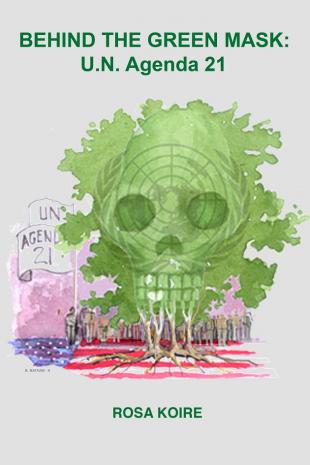Posted on November 5, 2012 by Jamie Miller from Battleground Group:
Some people have asked me “what should I look for in Florida election night?” Here are my thoughts – I’ve grouped the Florida counties below in three categories – Strong Obama, Strong Romney and true swing counties. Every campaign has a path to victory mostly in these counties. These counties will indicate early if Florida is trending toward a 5-point win for Romney like 2004 for Bush or a 2.8 % win for Obama like 2008.
It does not appear that there is major intensity for Obama like 2008, but Romney is not an incumbent President like Bush in 2004.
Strong Obama counties –
Miami/Dade, Palm Beach, Broward, Volusia and Alachua (Obama is going to win more counties than this, but these five are the counties where they can build bigger “swing” and will be a likely indicator of what Romney has to overcome to carry Florida. If Romney only loses these counties by less than 400,000 votes, he should have a very good night, but if Obama is able to push his margins in these five counties up to 500,000, he could be on a path to a victorious night.
Miami-Dade – In 2000 and 2004, Bush mitigated his losses here by less than 50,000 votes. In 2008, Obama won by nearly 140,000 votes. One would think Obama needs a margin of at least 100,000 if he is going to carry the state.
Palm Beach – The margins in 2000/2004 was 115,000 votes but in 2008 Democrats carried the county by an additional 20,000 votes for a 135,000 margin.
Broward – This is the big prize for democrats. Again 2000 and 2004 had almost identical margins of victory for Democrats with wins of 209,000 votes before Obama won the county by 254,000 in 2008. If Obama approaches a win margin of 250,000 it could be a long night for Romney.
Alachua – Home of the University Florida and the Florida Gators. This is a strong county for democrats that historically favors them by 14,000, but in 2008 Obama carried the county by an additional 13,000 for a 27,000 vote win.
Volusia – This is the home of Daytona Beach. This county often votes Republican in gubernatorial elections but normally supports the democrat in Presidential years. This county is an outlier in the fact that it is one of the few democrat-leaning counties where Bush lost the county in ‘04 by just 3,500 votes. GW and McCain lost this county in ’00 and ’08 by similar 14,000 votes. If Romney loses Volusia by less than 10,000 votes, it could be a good night for him. More than 10,000 would show stronger than expected support for the President.
Strong Romney counties –
Southwest Florida counties (Manatee, Sarasota, Charlotte, Lee and Collier); Brevard County on the Spacecoast; Northeast Florida’s Duval; three counties in central Florida Marion, Polk, and Sumter; and Northwest Florida’s GOP strongholds of Okaloosa and Escambia.
Many of these counties mimicked each other in 2000 and 2008. So it could be these counties are a greater indicator of Romney’s strength and determine if the “GOP motivation” advantage is real. Obama did well in and really mitigated his losses in these counties in 2008.
Duval is the home of the city of Jacksonville and normally goes big for Republicans. George W. won here by 44k votes in 2000 and more than 60k votes in 2004. Obama didn’t win here but he lost by just 7,900 votes. Duval is historically one of the first large counties to announce vote tallies and should be a good indicator of whether Romney will do well in Florida. It is one area of the state that Romney did not do as well in the primary, however.
Brevard is one of Florida’s hardest hit counties by the great recession. It is one of the counties that Republicans can run up a large margin in just one area. GW won by 18k and 43k in ’00 and ’04. McCain split the difference and won by nearly 30k votes. So, it is more of an indicator of how well Romney is doing and not necessarily how bad Obama may be doing in the state. Romney needs to win here by 40-50k votes.
Southwest Florida – These five counties provided G. W Bush with margins of about 90,000 votes in 2000 and 136,000 votes in 2004. Romney really needs to be above a 100k vote margin in these five counties if he’s going to win the state. Obama lost this area of the state by just 74k votes.
Polk, Marion and Sumter counties are indicative of where rural counties are going to go. Polk is the one “non-swing, GOP, I-4 corridor” county. Republicans won here by 15k votes in 2000 and 2008. In 2004, Bush was able to push his margin here to nearly 38k. A 15k-vote win here for Romney probably shows a very close race like 2000 or a GOP loss like 2008. Marion County is a GOP county but is an indicator of how well a Republican is going to do in the state. GW won this county by just 10k in 2000 and 24k in 2004. McCain did well in this county in 2008, however winning by nearly 19k votes. So Marion is more an indicator of how seniors are voting and not necessarily an indicator of an Obama loss. Sumter is a former rural county that now is home to The Villages retirement community. GOP wins have grown every election cycle and I don’t think that will change. GW won here in 2000 by 2,400 and in 2004 he won by 8,200. Like Marion, Sumter County performed well for McCain. He won here by 13,200 votes. Anything less than that would spell real trouble for Romney.
Northwest Florida – The polls stay open here in the Central Time Zone until 8 p.m. (EST) and two of the larger counties where a Republican can build margins are Escambia and Okaloosa. If Okaloosa trends toward a 50,000+ win like Bush in ’04 and Escambia trends toward Bush’s 45,000 vote victory in ’04, it would be good news for Romney. The total of the 10 counties in the Central Time Zone needs to approach 180,000 margin for a big victory on election night.
That brings us to the major swing counties in the state. I include Orange (Orlando) and St. Lucie in this group even though Obama is going to win both of these counties. The others to watch in this category are Hillsborough, Pinellas and Pasco.
Orange County is the first county in the history of the state to switch from Democrat to Republican and now back to Democrats. GW lost here by 5k vote in ’00 and just 800 in ’04. But, Obama won huge here in 2008, by more than 85,000 votes. Obama likely wins big here again, but if it is “only” by 50k, it could be an indicator that Obama didn’t motivate his voters like he did in 2008. It is possible for Obama to win here by 100k votes and lose Florida, but it would surely be an indicator of a much closer race than most final polls indicate.
Hillsborough – Florida’s latest bell-weather county. This county, the home of the Republican National Convention in Tampa, voted in favor of Bush in ’00 and ’04 by 11k and 31k respectively. But, this county swung to Obama by more than 36,000 votes in ’08. No one is going to win by just the margin in this county, but it would likely be an indicator of how well each campaign’s television ads were received during the campaign.
Pinellas County is home to some of the nicest beaches in the state, but is also a “lean-Democrat” County. Bush won Pinellas in ’04 by just 226 votes. If Romney wins here, it is an indicator that he won Florida big. An Obama win here of 25,000 votes, might be an indicator of a long night for both campaigns.
Pasco County north of Tampa is also a county that democrats can win, but can provide large margins for Republicans. GW lost this county in ’00 by about 1,000 votes but won here four years later by more than 18k votes. This county is an indicator of where “swing” voters are going with their votes. These are also economic voters and Obama lost here in ’08 by about 8,000 votes.
That brings us to St. Lucie County which is nestled between Democrat strongholds in SE FL and the GOP stronghold on the Space Coast. Prior to 2000, St. Lucie was Florida’s bell-weather county, but it has trended toward democrats in the past three elections. GW lost here twice both times by less than 7,000 votes. Obama beat McCain here by almost twice that margin, nearly 15,000 votes. If Obama approaches that type of margin, he may be in the midst of an upset in the state.
So, who wins Florida?
We will know in just a few hours, but in short, it’s the candidate who motivates his base, mitigates his losses in his weaker areas of the state, and who is able to keep from being blown out in the I-4 corridor. My prediction? I think Romney wins Florida big, by 5-6 points. If it turns out to be a bigger margin than that, we could have an upset in the U.S. Senate race, but I think Romney would have to win really big in Florida, by 8 points, to provide coattails for Congressman Mack.

Jamie Miller from Battleground Group
ABOUT JAMIE MILLER
Jamie Miller is a political consultant specializing in political campaign management, strategic planning, public relations, grassroots motivation, and crisis communications. He has been involved with running and managing political campaigns since 1994. Learn more at Battleground Group.


 Koire is the author of the book “
Koire is the author of the book “

